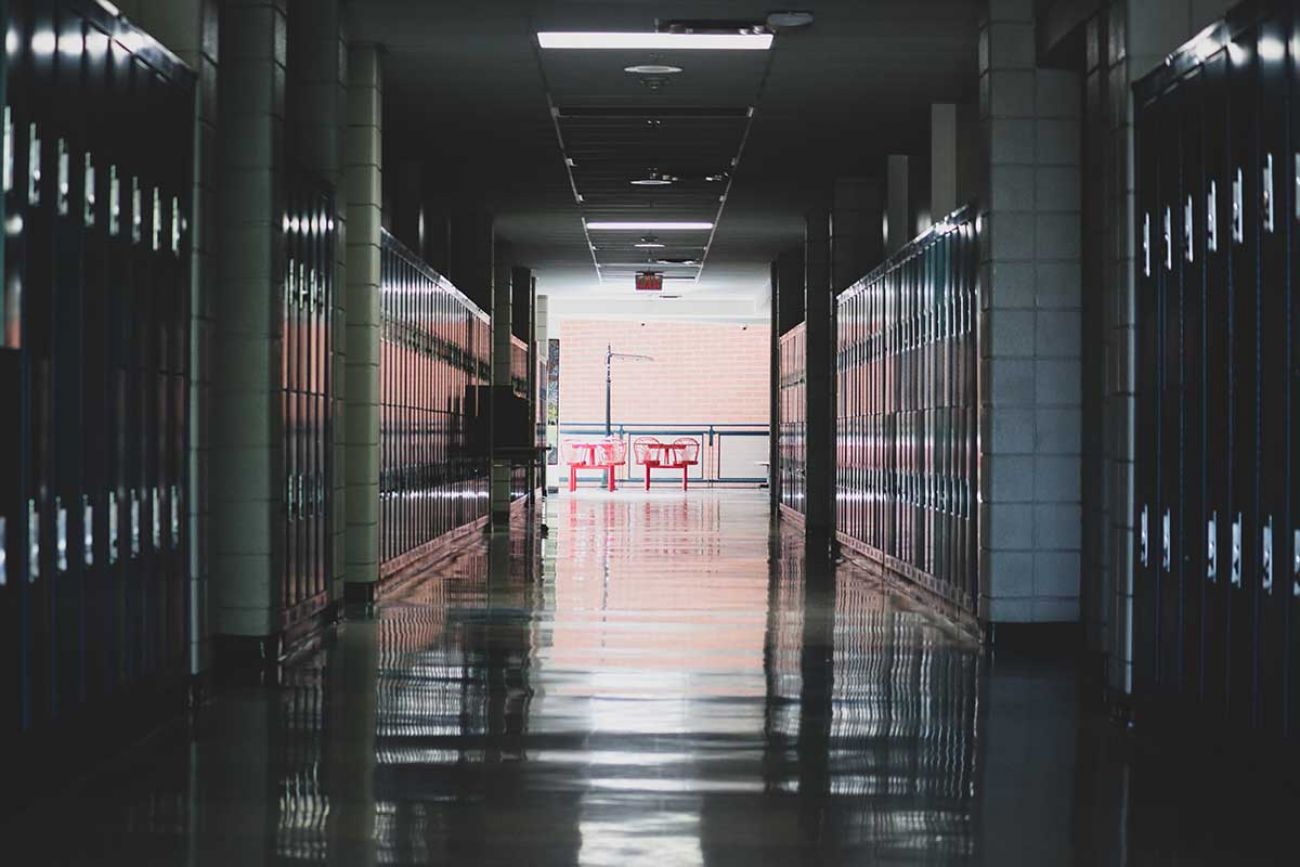Michigan House seeks $50 million for school police after Oxford shooting

A sheriff’s deputy regularly stationed at Oxford High School rushed to the school and helped apprehend the alleged shooter just minutes after the first shot was fired in Tuesday’s deadly rampage, stopping the 15-year-old suspect while he still had 18 rounds of ammunition, according to police.
But most Michigan schools don’t have a police officer regularly in their buildings who could rush to the sound of gunfire.
And there are likely fewer school resource officers today than several years ago because of budget cuts and employee shortages, according to Jeff Soli, a school resource officer in Fowlerville and president of the Schools, Educators, Police Liaison Association in Michigan.
Related:
- 15-year-old suspect in Oxford school shooting recorded threat to kill classmates
- Oxford shooting: Dems push gun safety; top Republican frets for ‘freedoms’
- Oxford Michigan school shooting shows limits of heightened security
That could change soon. Two days after a gunman killed four students in Oxford — the worst school shooting in the United States since 2018 — the Michigan House on Thursday approved plans to increase appropriations this fiscal year for school resource officers from $10 million to $50 million.
The funding increase was a direct response to this week's shooting, said sponsoring Rep. Gary Howell, a North Branch Republican whose son teaches at Oxford High School and barricaded his classroom door to protect students during the attack.
"That was obviously the catalyst for me to think about how can we assist other school districts to have that kind of potential protection," Howell told Bridge Michigan on Thursday.
The Legislature is sure to debate other policy changes in response to the Oxford shooting, but the police appropriations bill presented an immediate opportunity because it was already making its way through the legislative process, Howell said.
"We now know — we always knew, but now it's really dramatic — that a school resource officer can make a very significant difference when one of these horrible events happens," he said. “There's probably other things we can do, but this is probably the most immediate, direct thing we could do.”
The funding, part of a larger $369 million spending bill designed to help recruit and retain police officers statewide, passed by a vote of 97-3. It now goes to the Senate for consideration.
The three no votes were all Republicans: Rep. Steve Johnson of Wayland, Rep. Steve Carra of Three Rivers, and Rep. John Reilly of Oakland Township.
Reilly’s district includes Oxford, where the school shooting occurred. He did not immediately respond to a request for comment by Bridge but intends to hold a “listening meeting” in Oxford on Monday.
The funding will support an existing state grant program that is designed to help school districts that want resource officers. It’s not clear how many additional officers can be hired for $50 million. At a salary and benefits cost of $80,000, for example, that funding would pay for 625 new resource officers for Michigan’s 3,885 school buildings.
The funding could stretch further if schools leverage the same type of cost-sharing arrangements with local police departments and community governments that are common for the positions.
The tragedy at Oxford High School that left four dead and seven injured brought renewed attention to safety measures in Michigan’s public and private school buildings. School security has been hardened in recent years in response to mass shootings at schools around the country. Most have locked doors and many have security cameras and alarms linked to local police.
One measure that gained popularity after the 1999 Columbine shooting in Colorado was police officers stationed in school buildings. Those officers, who are official police and employed by local police departments, are typically called school resource officers or police liaisons.
Just how many police officers are stationed in Michigan schools isn’t known. The state doesn’t track the number of officers, or which buildings have them.
Lauren Leeds, spokesperson for the state’s Center for Educational Performance and Information, said Wednesday the department is considering tracking that data in the future.
The Michigan Association of Secondary School Principals doesn’t know either, but its executive director, Wendy Zdeb, told Bridge she believes resource officers like the one who was in Oxford High the day of the shooting are “the exception, not the rule” in state schools.
Officers are more common in high schools and middle schools than elementaries, and in urban and suburban schools than rural, Zdeb said.
Zdeb said she favors adding more school resource officers, for the increased sense of security they offer, but also for the additional work the officers do in the buildings
“When we look at the role they serve, it’s far beyond a tragic incident of this nature,” Zdeb said. “The relationship piece is critical. They are walking the hallways every day. They’re in the lunchroom and at school events. They are going to classrooms talking about Ok2Say (a 24-hour tip line for students to report potentially harmful activity) and talking about bullying prevention.”
Soli, the school resource officer in Fowlerville, said he believes every school building should have a trained officer.
You can’t pull someone off road (patrol) and do this, you have to be trained to know how to deal with things,” Soli said. “Eighty percent of the day is talking to students. Most of the day is positive.”
Some studies, though, question the value of police in schools. Schools with on-site police officers tend to have higher arrest and suspension rates, but that could be because schools in high-crime areas are more likely to have school resource officers.
One study suggested police officers can make schools less safe, particularly for children of color and lower-income children. There was a push to remove police from schools in 2020 in the wake of the murder of George Floyd by a Minneapolis police officer.
Districts in Minneapolis, Seattle and Portland promised to remove police from schools.
Robert McCann, executive director of the K12 Alliance of Michigan, a school advocacy organization, told Bridge Michigan on Thursday that legislators shouldn’t think they’ve stopped future school shootings by funding more cops.
“It’s not as simple as to say this solves the problem, because it doesn’t,” McCann said. A school resource officer “helped bring a quick end to what happened (in Oxford), but at the end of the day, it didn’t stop it, either.”
An increase in school counselors and mental health professionals, who might be able to spot and address problems before tragedies, would help, McCann said.
“We have to look at this as a holistic problem that needs a holistic approach,” he said. “We have to stop looking at these things as a school security problem, it’s a societal problem.”
For Howell, the sponsor of the increased funding whose son, John, teaches at Oxford High, Tuesday was "the most excruciating day I've ever experienced.
"Of course John was preoccupied barring the door to his classroom, trying to keep the students calm and march them down to this Meijer where they were congregating," Howell said. "It was about 45 minutes or an hour before I got a text from him saying he was OK.
"That was the longest time period of my life."
Michigan Education Watch
Michigan Education Watch is made possible by generous financial support from:
Subscribe to Michigan Health Watch
See what new members are saying about why they donated to Bridge Michigan:
- “In order for this information to be accurate and unbiased it must be underwritten by its readers, not by special interests.” - Larry S.
- “Not many other media sources report on the topics Bridge does.” - Susan B.
- “Your journalism is outstanding and rare these days.” - Mark S.
If you want to ensure the future of nonpartisan, nonprofit Michigan journalism, please become a member today. You, too, will be asked why you donated and maybe we'll feature your quote next time!





